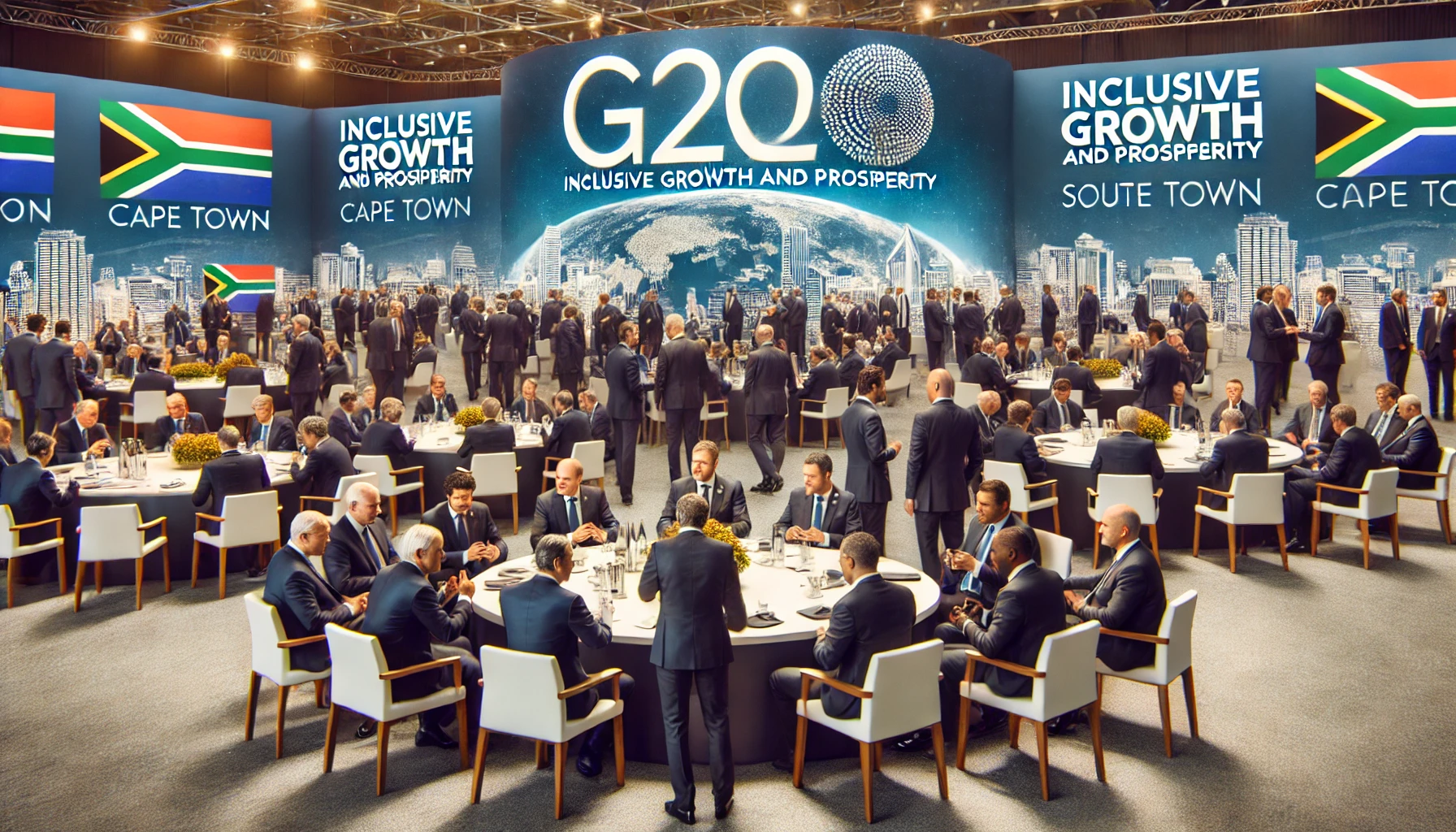South Africa's G20 Presidency: Navigating a Fragmented Global Landscape
Speaking at the Business 20 (B20) summit, Brende highlighted South Africa's unique position to manage global tensions and foster constructive dialogue.

- Country:
- South Africa
Amidst an increasingly polarized geopolitical environment, Børge Brende, the President and CEO of the World Economic Forum (WEF), has voiced strong support for South Africa's leadership in the Group of 20 (G20) Presidency. Speaking at the Business 20 (B20) summit, Brende highlighted South Africa's unique position to manage global tensions and foster constructive dialogue.
"In such a polarized, fragmented world as the backdrop of this G20 leadership, I think South Africa is especially well positioned to handle this very complicated geopolitical situation," Brende remarked during his address on Tuesday.
South Africa's Role in a Challenging Global Context
As South Africa prepares to host the G20 Leaders' Summit later this year, Cape Town recently hosted the B20 summit, a two-day gathering focused on "Inclusive Growth and Prosperity through Global Participation." The event convened leaders from the international business community to discuss strategies for sustainable economic progress.
Brende acknowledged the complexities of presiding over the G20 in the current climate, citing South Africa's extensive experience in navigating economic competition and historical challenges. He emphasized the necessity of dialogue, noting the difficulty in even getting opposing parties to sit in the same room.
"The last few weeks have shown us that we have to fasten our seat belts. Even getting people who don’t agree with us to engage in discussions is an achievement. I saw this firsthand in Davos this year, where those with differing opinions sometimes refuse to engage. But to break impasses, dialogue is essential," he stated.
The Private Sector’s Role in Global Stability
Brende stressed the importance of business in addressing global challenges. He noted that the private sector plays a pivotal role in mobilizing investment, driving innovation, and advancing sustainable solutions.
"If you want to get anything done, you must work with the business sector. That is the only way to attract investment and fresh capital," he explained.
Africa’s Economic Potential and Technological Advancements
Africa, with its rapidly growing economies and youthful workforce, is positioned to play a crucial role in the future of global trade. Brende highlighted the African Continental Free Trade Area (AfCFTA) as a transformative initiative, with the potential to unlock $450 billion in economic gains over the next decade.
Moreover, he emphasized the impact of emerging technologies on global trade, noting that the expansion of digital trade and services is outpacing traditional manufacturing. Artificial intelligence (AI) and machine learning are expected to significantly boost productivity, potentially increasing global output by 10% within a decade.
Addressing Global Challenges
In addition to economic growth, Brende identified critical global challenges that require urgent attention, including climate change, cybersecurity, and the need for consensus on carbon dioxide (CO2) emissions. Despite ongoing geopolitical tensions, he projected a 3% growth in the global economy this year, with trade also expected to grow at a similar rate.
"Now is the time for the B20 and G20 to work together to accelerate sustainable growth, strengthen global trade, and ensure that economic progress benefits all," Brende concluded, citing South Africa’s long-standing commitment to cooperation as a model for global engagement.
With South Africa leading the G20 in a time of unprecedented global complexity, the nation's ability to foster dialogue and drive economic collaboration will be instrumental in shaping a more inclusive and sustainable future.
- READ MORE ON:
- World Economic Forum
- Børge Brende
- B20










